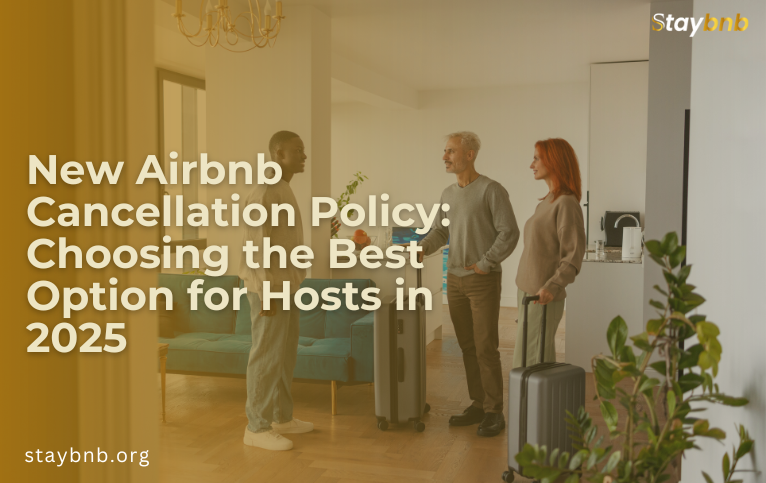Hosting on Airbnb gives a great earning opportunity by renting your property to guests from around the world. It is really important that you have all necessary Airbnb tax documents up to date. These documents protect you, your house and your guests, allowing you to avoid expensive legal issues and provide smooth operations. In this article, we will outline the key legal documents required, why they’re important and how expert virtual co-hosting could assist you to deal with the requirements more confidently.
Why Legal Documents Matter for Airbnb Hosting
Running an Airbnb property is more than simply listing your house online. It requires meeting regulatory requirements, tax codes and creating clear contracts that define how you do business with guests. These contractual documents protect your rental operation from miscommunications, disputes and rule violations that could disrupt or terminate your hosting journey. Since rules significantly depend on location, it is important to stay proactive with paperwork to ensure compliance and safeguard your investment.
Airbnb Tax Documents Every Host Needs
One of the key legal areas for any Airbnb host is tax compliance. Hosts are responsible for reporting their rental income accurately and meeting local tax rules.
- Income Tax Documentation: It’s a must for Airbnb hosts to declare their earnings for personal or business income tax filings. Keeping records of your bookings, payouts and expenses is critical.
- Form 1099-K (U.S. specific): For U.S. hosts earning over a certain threshold, Airbnb issues a Form 1099-K detailing gross earnings from bookings. This IRS form helps you and the government track reported income.
- Local Occupancy or Lodging Taxes: Many municipalities require hosts to collect and remit transient occupancy taxes (TOT), hotel taxes or similar levies. You may need documents registering your tax collection account or periodic tax filing forms.
Where to Find Airbnb Tax Documents
You can view main Airbnb tax documents in the “Tax” category under your Airbnb host tab , which includes annual summaries and forms such as the 1099-K for eligible U.S. hosts. To access additional tax documents or learn more about local tax laws, visit the official government websites for your city or state. Virtual co-hosting from Staybnb makes this really easier by tracking tax updates, helping hosts collect and organize required documents to be filed in tax within a given timeframe.
Why Airbnb Tax Documents Are Important for Compliance
Proper tax filing enables you to meet all legal requirements and claim deductions such as property maintenance or cleaning expenses. It also strengthens the credibility of your hosting business in the event of a government audit. Without proper recordkeeping and submission you risk fines, back payments and legal issues that could disqualify you from hosting.
Airbnb Rental Agreement and Contracts
Terms of business of Airbnb have a baseline agreement between guests and hosts that does not have enough information to cover all situations. Making a personalized rental agreement on Airbnb is an important step for hosts to outline responsibilities of guests, shield themselves from damage, and define house rules. These agreements are legally binding documents that supplement the terms of Airbnb with house rules that suit a particular property.
Creating an Airbnb Rental Agreement for Guests
Your Airbnb rental agreement must include key facts like check-in and check-out procedure, guests count allowed, pet and smoking regulations, payment and cancellation terms, disclaimers of responsibility, and security deposit terms. Well-written contracts avoid issues by informing guests of rules and consequences of rule violations. Some hosts draw such contracts with attorneys consultation or through templates particular to their location and type of rental. Staybnb’s online co-hosting provides expertise in drafting concise and practical Airbnb contracts that suit a range of hosting destinations.
Difference Between an Airbnb Lease Agreement and Rental Agreement
The difference between a rental agreement and an Airbnb lease agreement is mostly in the duration of the stay and the rights involved. Lease agreements are common for long-term stays e.g at least 30 days, giving guests greater rights similar to regular tenants. In fact, the rental agreements are flexible and better for short-term stays that focus on guest behavior and house rules. Knowing which one is suitable for your rental ensures legal compliance and sets the right expectations for visitors. Staybnb virtual co-hosting helps with choosing and applying the right agreement for each booking.
Airbnb License and Business Registration
Some of the cities and municipalities mandate the licensing of Airbnb hosts to run their short-term rental company legally. Such Airbnb business licenses provide for the execution of safety, zoning, and taxation requirements and aid local governments in overseeing STR effects on neighborhoods. They may require a general business license, a specific short-term rental permit (like issued via Airbnb) or some unique vacation rental certifications.
Do You Need an Airbnb License to Host?
Your licensure requirement relies on neighborhood regulation, which can significantly differ. A few administrations exempt short-term renters holding their primary abodes exclusively, while others require rigorous registration, permit licensing, and day limitations on rentals. Do research on your municipality or county government’s main website to get accurate licensure requirements. The expert STR company manages constantly evolving rules and helps hosts attain and retain necessary licensings to avoid disruption of their rental business.
Common procedures to apply for Airbnb Business License:
- Identify local requirements.
- Complete the application, including property and ownership details.
- Pay any applicable licensing fees.
- Undergo inspections, if required.
- Obtain an official approval or a license number to display on your listings.
Local Rules That Affect Your Airbnb License
Local laws can restrict the days of rentals per year, requiring hosts to be present on-site, set occupancy and safety guidelines that affect your hosting license. Breaching these rules can cause penalties, getting delisted or even legal measures. Staying updated on local laws is essential for smooth hosting. Staybnb tracks these norms and informs you with timely alerts, keeping you compliance-oriented with minimum effort.
Staying Compliant and Stress-Free with Staybnb Virtual Co-Hosting
Whether you’re a newbie or a seasoned pro host, obtaining the proper legal papers like Airbnb tax documents, rental contracts, lease agreements and business permits is crucial for running a profitable Airbnb rental. These papers safeguard your property, earn you the maximum possible income and prevent financial mistakes. Navigating compliance, paperwork and the regulations can become really overwhelming. Staybnb virtual co-hosting gives you expert advice and hands-on help to keep your hosting on Airbnb legal and hassle-free.
Ensure your Airbnb hosting is professionally and legally compliant with Staybnb. Call us today to discover how our virtual co-hosting can simplify compliance and allow you to focus on delivering memorable guest experiences.














